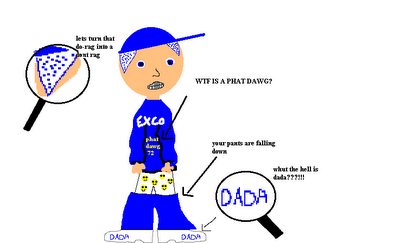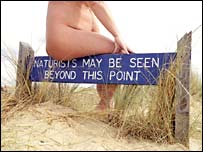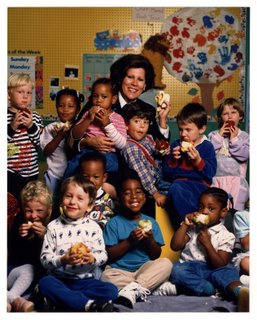
Okay, this is an actual competition that took place in Gloucestershire, England this past weekend. Any guesses as to the sport? Find the answer in the Comments window...



 Mary Shelley was one of the first female authors to write in the form of the novel; however, it was Jane Austen, who included several central female characters and their quotidian happenings in her novels of manners, who really started the “chick lit” genre. Austen’s novels include all the romance, negotiations of society and character growth that we see in many of the popular “chick lit” novels today.
Mary Shelley was one of the first female authors to write in the form of the novel; however, it was Jane Austen, who included several central female characters and their quotidian happenings in her novels of manners, who really started the “chick lit” genre. Austen’s novels include all the romance, negotiations of society and character growth that we see in many of the popular “chick lit” novels today. Just as Catherine “greatly preferred cricket…to dolls” in Austen’s Northanger Abbey, and the title character in Emma enjoys such unladylike pursuits as archery, our modern day heroines like Bridget Jones do not fit the romantic feminine stereotype. We enjoy reading about slightly flawed characters (flaws that we may see in ourselves) who eventually stumble through the imperfections of life to prevail in the end (usually by landing a Marc Darcy or a Mr. Knightley). The reading is emotionally light, lacking in any heavy issues.
Just as Catherine “greatly preferred cricket…to dolls” in Austen’s Northanger Abbey, and the title character in Emma enjoys such unladylike pursuits as archery, our modern day heroines like Bridget Jones do not fit the romantic feminine stereotype. We enjoy reading about slightly flawed characters (flaws that we may see in ourselves) who eventually stumble through the imperfections of life to prevail in the end (usually by landing a Marc Darcy or a Mr. Knightley). The reading is emotionally light, lacking in any heavy issues. Compare this to the rise of the romance genre, with flowing hair and chiseled pecs on the pink and white covers, and the elaborately described scenes of love and loss on the pages inside. These novels work on ideas of perfect and flawless love. Their sole audience is women and their sole purpose is that of escape, with little critical analysis or thought needed.
Compare this to the rise of the romance genre, with flowing hair and chiseled pecs on the pink and white covers, and the elaborately described scenes of love and loss on the pages inside. These novels work on ideas of perfect and flawless love. Their sole audience is women and their sole purpose is that of escape, with little critical analysis or thought needed. The same can be said of many contemporary (Canadian) authors – Margaret Atwood, Alice Munro, Sylvia Fraser, Ann-Marie MacDonald – these authors write from the perspective of “other”: marginalized members of society trying to negotiate their place within it. These stories are denser, pithier dissections of our so-called lives. They make us take a look at our imperfect existence and draw connections to ourselves.
The same can be said of many contemporary (Canadian) authors – Margaret Atwood, Alice Munro, Sylvia Fraser, Ann-Marie MacDonald – these authors write from the perspective of “other”: marginalized members of society trying to negotiate their place within it. These stories are denser, pithier dissections of our so-called lives. They make us take a look at our imperfect existence and draw connections to ourselves. Like Bridget Jones, the new, successful spring of pink and teal novels, set out pleasingly on tables in bookstores, combine the endeavour for perfection with the reality of “chick” life. McLaren may feel that the label undermines her efforts as a serious novelist (she has recently written The Continuity Girl, which I haven't read), but is she really writing about serious subjects?
Like Bridget Jones, the new, successful spring of pink and teal novels, set out pleasingly on tables in bookstores, combine the endeavour for perfection with the reality of “chick” life. McLaren may feel that the label undermines her efforts as a serious novelist (she has recently written The Continuity Girl, which I haven't read), but is she really writing about serious subjects? 
 Just as Simpsons devotees have been arguing for ages: The Simpsons is a forum for modern philosophical discourse, led by the great philosopher of our age, Homer Simpson. Read the full analysis as explored by philosopher Julian Baggini.
Just as Simpsons devotees have been arguing for ages: The Simpsons is a forum for modern philosophical discourse, led by the great philosopher of our age, Homer Simpson. Read the full analysis as explored by philosopher Julian Baggini.
 Like the line from the Nickleback song "Photograph," a similar question may be asked about the gentleman at left.
Like the line from the Nickleback song "Photograph," a similar question may be asked about the gentleman at left.  Really, this is what life is all about: mild spring mornings, bike lane stretched out before you, a line of suckers idling in their cars as you sail past. Biking to work really makes you feel good. Not only are you stepping up to the One Tonne Challenge (Oh wait, wasn't that cancelled by the Conservatives? I guess we didn't need clean air in our atmosphere, anyway - oil production is way more important), but you are increasing your heart health and putting those endorphins into action first thing in the morning. Biking is reportedly the best way to travel within 10km in an urban centre (source: Green Living, Spring/Summer 2006): it's fast, it's free, and you don't get caught in traffic gridlock.
Really, this is what life is all about: mild spring mornings, bike lane stretched out before you, a line of suckers idling in their cars as you sail past. Biking to work really makes you feel good. Not only are you stepping up to the One Tonne Challenge (Oh wait, wasn't that cancelled by the Conservatives? I guess we didn't need clean air in our atmosphere, anyway - oil production is way more important), but you are increasing your heart health and putting those endorphins into action first thing in the morning. Biking is reportedly the best way to travel within 10km in an urban centre (source: Green Living, Spring/Summer 2006): it's fast, it's free, and you don't get caught in traffic gridlock. And here's one personal reason for biking to work. There is a piece of graffiti written on the road, within the boundaries of the bike lane (on Dundas, just west of Coxwell) that I pass by each morning I ride my bike. It's hard to tell in the picture at right, but the words spray-painted on the road read: "LOVE IS THE MESSAGE". This has provided me with inspiration and melted any stress or anger every morning I pass it. Maybe it's those endorphins, kickstarting my serotonin; maybe it's the fresh spring air; maybe it's the knowledge that I am not contributing to the destruction of our earth. But that little piece of urban poetry is my psalm, my bible reading of the morning that sets me up for a good day. I repeat it like a mantra as I ride over it.
And here's one personal reason for biking to work. There is a piece of graffiti written on the road, within the boundaries of the bike lane (on Dundas, just west of Coxwell) that I pass by each morning I ride my bike. It's hard to tell in the picture at right, but the words spray-painted on the road read: "LOVE IS THE MESSAGE". This has provided me with inspiration and melted any stress or anger every morning I pass it. Maybe it's those endorphins, kickstarting my serotonin; maybe it's the fresh spring air; maybe it's the knowledge that I am not contributing to the destruction of our earth. But that little piece of urban poetry is my psalm, my bible reading of the morning that sets me up for a good day. I repeat it like a mantra as I ride over it.
 Growing up in a family with parents from "the old country" and "across the pond," I have become well versed in the lexicon of the Brits. I know you eat biscuits, live in a flat, and chuck baggage in the boot of a car. A lift is an elevator, a jumper is a sweater, and bloody hell, you offer anyone a "cuppa" that pops 'round yours for a chat. I can even quickly translate "pants" for "underwear" and avoid any embarassing situation involving references to knickers.
Growing up in a family with parents from "the old country" and "across the pond," I have become well versed in the lexicon of the Brits. I know you eat biscuits, live in a flat, and chuck baggage in the boot of a car. A lift is an elevator, a jumper is a sweater, and bloody hell, you offer anyone a "cuppa" that pops 'round yours for a chat. I can even quickly translate "pants" for "underwear" and avoid any embarassing situation involving references to knickers. With spring now in full force (is anyone else always amazed at how fast the city becomes so green?), the gardening enthusiasts of Toronto are lining up at Home Depots across the city to stock up on their Miracle Grow, their pansies and their gardening gloves. However, the one thing that amateur horticulturalists will not be able to pick up from any company this season, is a toxic dose of pesticides to kill off plants that are deemed “weeds” by our fickle society (for what is a weed, but a "a plant anywhere you don't want it?").
With spring now in full force (is anyone else always amazed at how fast the city becomes so green?), the gardening enthusiasts of Toronto are lining up at Home Depots across the city to stock up on their Miracle Grow, their pansies and their gardening gloves. However, the one thing that amateur horticulturalists will not be able to pick up from any company this season, is a toxic dose of pesticides to kill off plants that are deemed “weeds” by our fickle society (for what is a weed, but a "a plant anywhere you don't want it?").
 Well, that’s the problem with society, you see. Not all parents see fit. This is not a rant about the misspending of that money. I’m sure many parents are happy to receive a grand from the government and will spend it responsibly. But like the Conservatives’ clamp down on crime by rounding up the criminals and givin’ ‘em longer sentences, the Tories’ about turn from national daycare connects nicely with my gardening metaphor: it cuts the weed at the stalk, temporarily removing the bad stuff - all that work and money into a national daycare programme - and ignores the roots – the healthy and vigourous development of our children.
Well, that’s the problem with society, you see. Not all parents see fit. This is not a rant about the misspending of that money. I’m sure many parents are happy to receive a grand from the government and will spend it responsibly. But like the Conservatives’ clamp down on crime by rounding up the criminals and givin’ ‘em longer sentences, the Tories’ about turn from national daycare connects nicely with my gardening metaphor: it cuts the weed at the stalk, temporarily removing the bad stuff - all that work and money into a national daycare programme - and ignores the roots – the healthy and vigourous development of our children. We are seeing the results of all those Harris cuts to social programmes back in the 90s with more guns being shot off by misguided youth, failed by social programmes and trapped in poverty. Harris got rid of the weeds, but the roots remained firm and are now growing up.
We are seeing the results of all those Harris cuts to social programmes back in the 90s with more guns being shot off by misguided youth, failed by social programmes and trapped in poverty. Harris got rid of the weeds, but the roots remained firm and are now growing up.